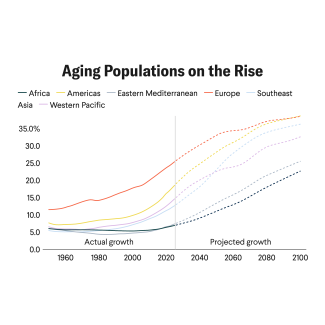It’s difficult to gauge the magnitude of the impact that something as heinous as war can have on the lives of the people who experience it, especially when they were too young at the time to understand the conflict.
From the mid-1960s to the late 1990s, Guatemala was embroiled in a civil war that led to the forced disappearance of more than 250,000 people. Conflicts usually result in casualties of people who have nothing to do with it. In Guatemala, a country marked by state corruption, insecurity, extreme poverty, and a lack of socioeconomic opportunities for indigenous populations, the impact of the war extended to infants, whose only “crimes” were being born in a rural, impoverished area.
Thousands of children were sent abroad in unregulated adoption processes. Approximately five thousand children were stolen. Thirty-five thousand minors were given for fraudulent adoption and delivered without verifying that they had a family. In the worst cases, some were bought from their parents, exploiting their situation of extreme poverty.
Such is the story of Ignacio Alvarado, whose mother abandoned him on the banks of a river because socioeconomic problems made it impossible for her to raise him. A group of villagers soon found him and immediately took him to the nearest hospital, where an orphanage run by the Guatemalan State took him and placed him for adoption to a family from Quebec, Canada. “The orphanage belonged to the government, and many of us who went through this institution were sent to Canada or the United States, illegally, because there was an agreement between the Guatemalan government and the orphanage,” Alvarado says.
Thirty-five thousand minors were given for fraudulent adoption and delivered without verifying that they had a family
When the Guatemalan government and the orphanages realized that the fraudulent adoption process was highly profitable, they turned it into a business. “The real perpetrators were those in power,” says Alvarado, who’s now thirty-eight. “They took advantage of the vulnerability of young mothers who were extremely poor and encouraged them to abandon or sell their children to give them up for adoption,” he adds.
The people who adopted these children were also victims of propaganda from the state. “The adoption agency told the prospective parents that there are orphaned children in Guatemala from vulnerable communities and that the war is affecting them, and they must be saved,” Alvarado tells us.
Without Losing Hope, He Seeks His Truth
A year and a half ago, in 2021, Alvarado returned to his native country from Canada to search for his biological mother after getting in touch with other Guatemalans in similar positions who had lived in the same orphanage as he.
One afternoon, while wandering the old streets of downtown Guatemala City, Alvarado came across some posters that immediately caught his attention: “I’m looking for my mother.” As he read, he realized that these people were in the same situation he was. They were among the children who were fraudulently offered for adoption by the Guatemalan government to North America in the 1980s.

“That is when I felt we had to do something to organize ourselves,” Alvarado says. In December 2021, together with three other victims of fraudulent adoption, Alvarado founded Estamos Aquí, which means “we are here” in English, an organization that seeks to shed light on the stories of Guatemala’s forgotten children—“to know the truth about where we come from, who we are, and to meet our biological mothers,” he explains.
It has been emotionally challenging for Alvarado and his compatriots to fight for a cause that infringed on their and their mothers’ human rights, which is why they are seeking justice for those war crimes. “This organization aims to collect documentary, testimonial, and photographic information, which can be used to create a database to help sons and daughters find their families again,” Alvarado tells us.
Alvarado finally found his biological mother and met her husband and other children. Although he confesses that adjusting to his new family has been difficult, he’s delighted to spend time with them. “I can’t blame my mom for abandoning me at that time,” he says. “She was influenced by the sociopolitical context and her financial situation.”
Although the government officials and orphanages involved in these illegal adoptions won’t come forward because they’re afraid of the consequences that come with breaching the rights of children under the age of eighteen, the goal of people like Alvarado is “to make it possible for cases like [his] to find their mothers and reconnect with them.”




